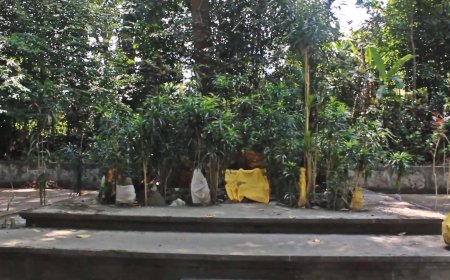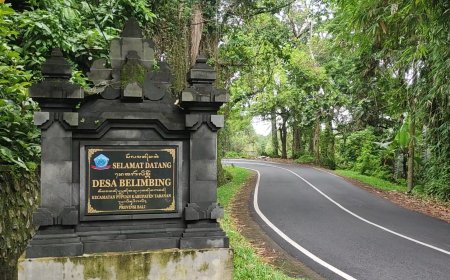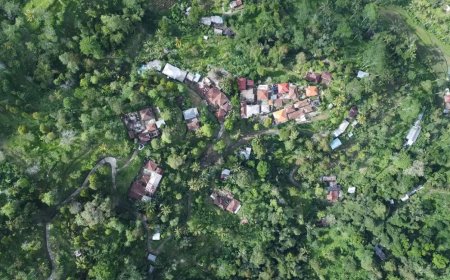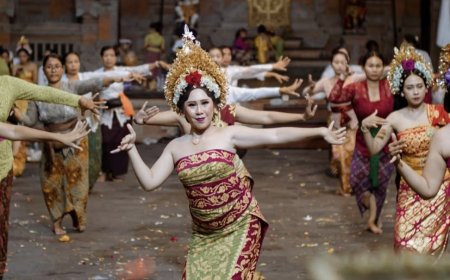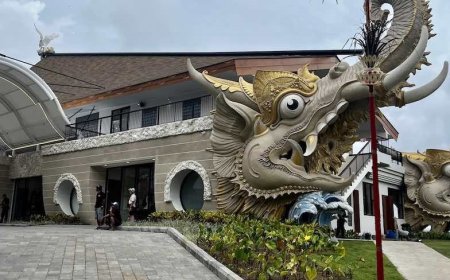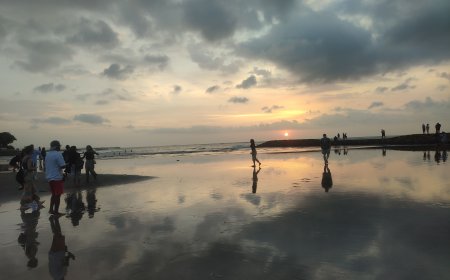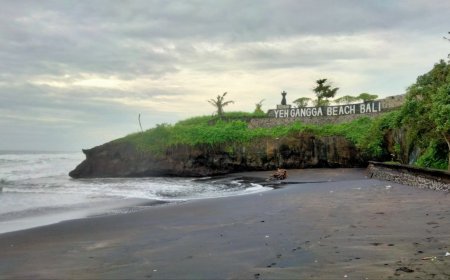Jatiluwih: Famous Village, designated by UNESCO as a World Cultural Heritage
Jatiluwih is a village located in Bali, famous for its impressive rice terraces and stunning natural scenery. It is often a popular tourist destination for those who love to explore the natural beauty and authentic Balinese culture, so much so that the village was designated by UNESCO as a World Cultural Heritage. Therefore, what is the uniqueness of Jatiluwih village? Let's discuss thoroughly about Jatiluwih village.
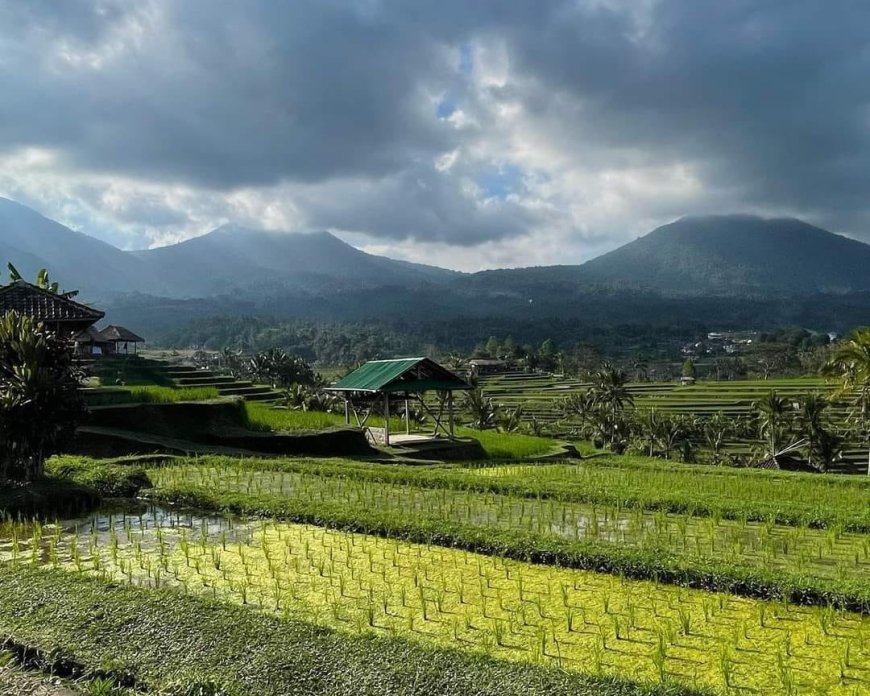
Jatiluwih is a village that has a large expanse of rice fields along with a beautiful panorama of terraced rice fields located in Penebel District, Tabanan Regency, Bali. Jatiluwih village is known as a tourist spot with the beauty of terraced rice fields that still use the traditional Balinese rice irrigation system, which is located near the Batukaru mountains accompanied by cool air.
To visit Jatiluwih Village, you can reach a distance of approximately 50 KM from Denpasar city and 26 KM from Tabanan city. For those of you who are on vacation on the island of Bali, this tourist attraction in the village of Jatiluwih Bali can be an option for a vacation by enjoying the panoramic beauty of mountain rice fields as well as local wisdom in this village.
To know the history of Jatiluwih is entirely sourced from the stories of parents who are natives of Jatiluwih Village itself. It is said that JATILUWIH comes from the words “JATON” and “LUWIH”. "JATON" means amulet, while "LUWIH" means good, from these two words it can be concluded that Jatiluwih means a village that has an amulet that is really good/powerful or efficacious.
From another source, it is said that in the middle of the village there is a graveyard of ancient animals, namely a “Jatayu” bird. From the word Jatayu, over time the sound changed to “JATON AYU” which means “Luwih” or Good. So “JATON AYU” is the same as Jatiluwih. With that, the word Jatiluwih has long been determined to be the name of the village and to this day has never changed.
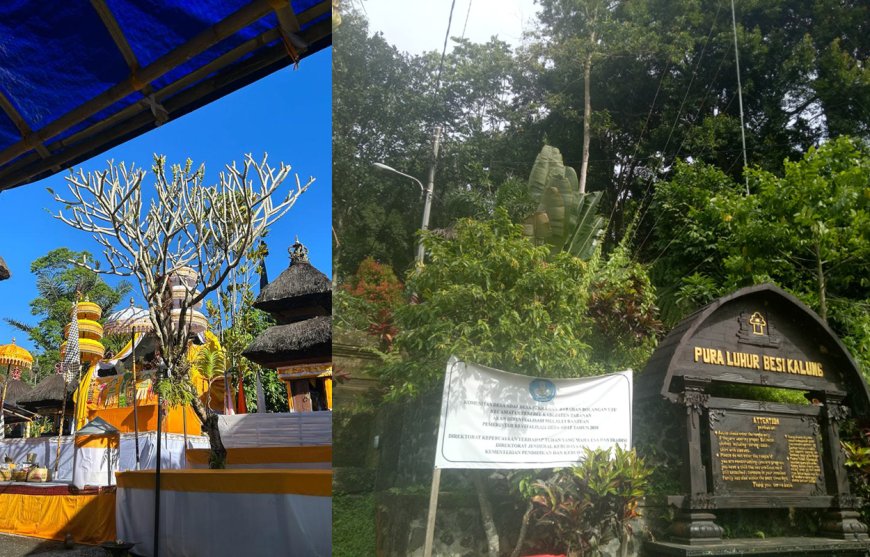
Luhur Sri Rambut Sedana Temple & Luhur Besi Kalung Temple (Photo Source : Author's Collection)
From the meaning of the name Jatiluwih can be proven by the results of Farming and Gardening which is enough to fulfill the needs of life and welfare for all its people with guaranteed safety for the people while carrying out farming life. So in ancient times many Brahmins, “Ksatria”, “Wesia” and “Sudra” came from the Tabanan area to visit Jatiluwih village in the hope of asking for the welfare and safety of their respective groups. Finally, they then established the temples that exist now in Jatiluwih Village such as the “Luhur Petali” Temple, “Luhur Bhujangga Waisnawa” Temple, “Rshi Temple”, “Luhur Besi Kalung” Temple, “Luhur Sri Rambut Sedana” Temple, “Taksu” Temple and other holy places around it.
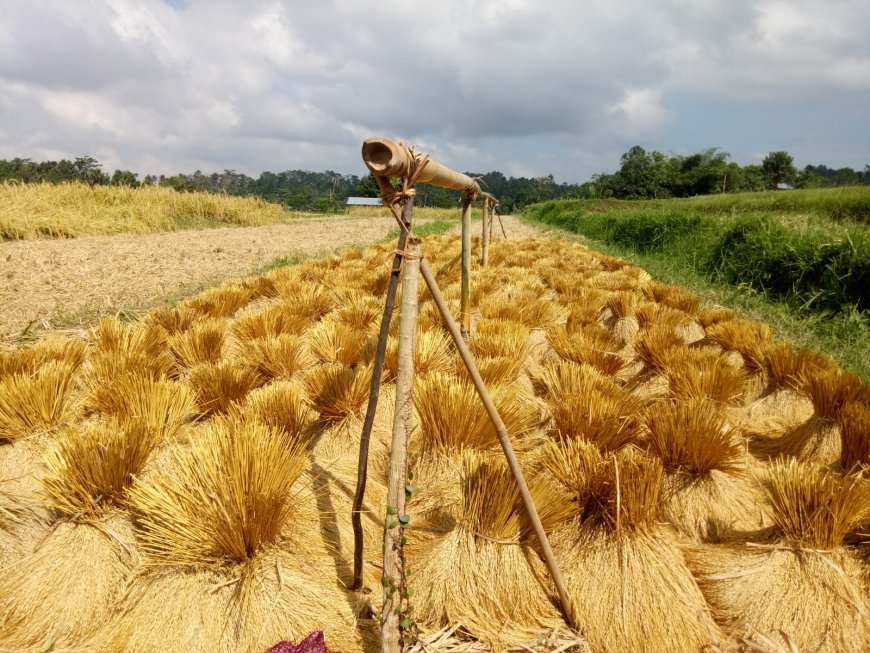
Rice Harvest Results by Farmers (Photo Source: Author's Collection)
Jatiluwih Village has an area of approximately 33.22 km2, with an altitude of approximately 1,059 meters or 3,476 feet above sea level. Jatiluwih village has a tropical climate throughout most of the month, in a year there is also significant rainfall in this area. Jatiluwih has the majority of its population earning a living as rice farmers, at this time in the village community Jatiluwih has also formed farming groups which will then increase the income of the Community such as fish farming groups, livestock groups, etc. Community organizations that specifically regulate the irrigation system (irrigation) of rice fields used in rice farming in Jatiluwih and on the island of Bali in general are called “Subak”.
Jatiluwih Village has been designated by UNESCO as a World Cultural Heritage (WBD) since June 29, 2012. Because it has a unique and distinctive feature on its agricultural system, namely; First, Jatiluwih subak is arguably still original and also beautiful when compared to other subaks in Bali which are mostly limited by concrete gardens (buildings), Second, the rice varieties grown in Jatiluwih subak are local varieties of Red Bali Rice, Third, aesthetically the view of the subak in Jatiluwih village is very eye-catching, Fourth, Jatiluwih subak still follows traditional rules in preserving it, and Fifth, using the concept of the philosophy of "Tri Hita Karana" (philosophy of balance between man and his fellow man, man and nature, man and the Creator).
Jatiluwih village is included in the “Subak” Landscape Area of Catur Angga Batukaru which is one of 5 areas in Bali that has been designated by UNESCO as a world cultural heritage. Subak Jatiluwih village socio-culturally using the philosophical concept of "Tri Hita Karana" aims to achieve and foster harmony and harmony between subak residents with each other, subak residents with the environment or nature, and subak residents with the Creator or God as an element of “parahyangan”.
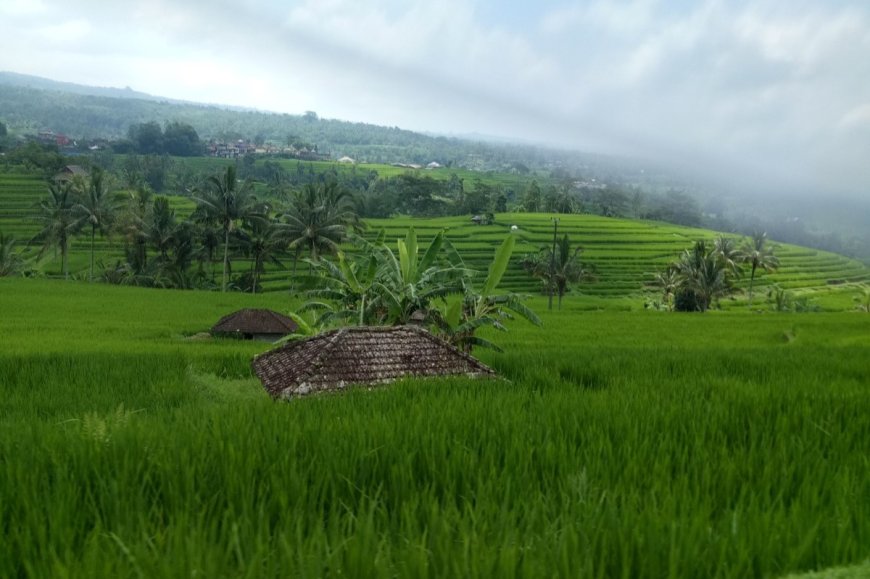
Terracing (Photo Source: Author's Collection)
Jatiluwih is very recognizable with the characteristics of its terraced rice fields, with a good irrigation system managed by members of the “subak”, regardless of the philosophy of "Tri Hita Karana" which is the foundation of farmers in Jatiluwih then in the processing of rice fields is very based on the philosophy. With this, it creates a relationship with the creator by performing ceremonies that are part of the farmer's activities such as; cultivating rice fields, planting rice, taking water from springs, harvesting, and so on, in accordance with Hindu culture and religion embraced by most farmers in Jatiluwih village.
Farmers' activities are indeed one of the main attractions and are often used as objects of photography by tourists, generally the activities of farmers in the rice fields still use traditional methods and tools to work on their fields such as; Hoeing, “Nampadin” (cleaning the rice fields), “Ngelampit” (plowing the fields), “Melasah” (leveling the rice fields), “Nandur” (planting rice), and so on. In addition, in the Jatiluwih area there are also other tourist activities such as hiking and cycling, to support tourism facilities, in Jatiluwih there are also tourist lodges or cottages, cafes, and stalls or restaurants that serve specialty foods with brown rice from agricultural products in Jatiluwih.
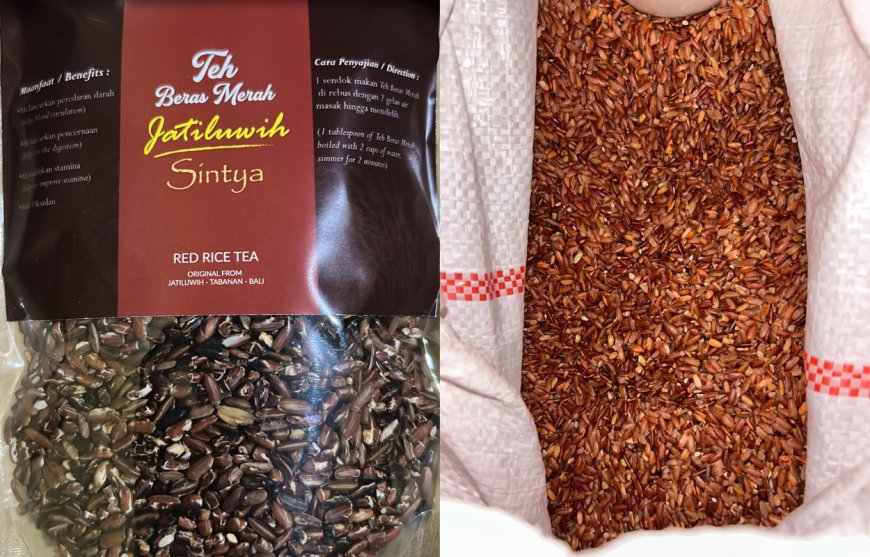
Red Rice Tea & Brown Rice (Photo Source: Author's Collection)
The signature souvenirs of Jatiluwih village are Red Bali Rice which is a local rice variety and also Red Rice Tea. Apart from its natural beauty, Jatiluwih village is the main producer of red rice. In terms of color, smell, taste, and also the benefits of brown rice are very different from ordinary rice in general, because it does not use pesticides.
This causes many food places, both restaurants and cafes in Jatiluwih village to serve specialty foods by managing brown rice from agricultural products in Jatiluwih.
To visit Jatiluwih village, it is highly recommended around 08.00 in the morning until the afternoon around 05.00, because in the range of these hours the activities of farmers are still widely found and there are also other tourist attractions that are safer to explore during the day which is indeed for road access to several tourist attractions in Jatiluwih in the form of forestry. Due to the very high rainfall in the Jatiluwih village area, it is highly recommended to always prepare an umbrella or raincoat, or it is better before visiting Jatiluwih village visitors can monitor the weather forecast the day before.
To be able to enjoy the natural panorama of Jatiluwih with its green and beautiful rice terraces, tourists can visit Jatiluwih between February and April, because in that month the rice plants begin to grow tall, green and yellow. Then around June to July, the rice plants are ready to be harvested and harvesting activities by farmers will be found.
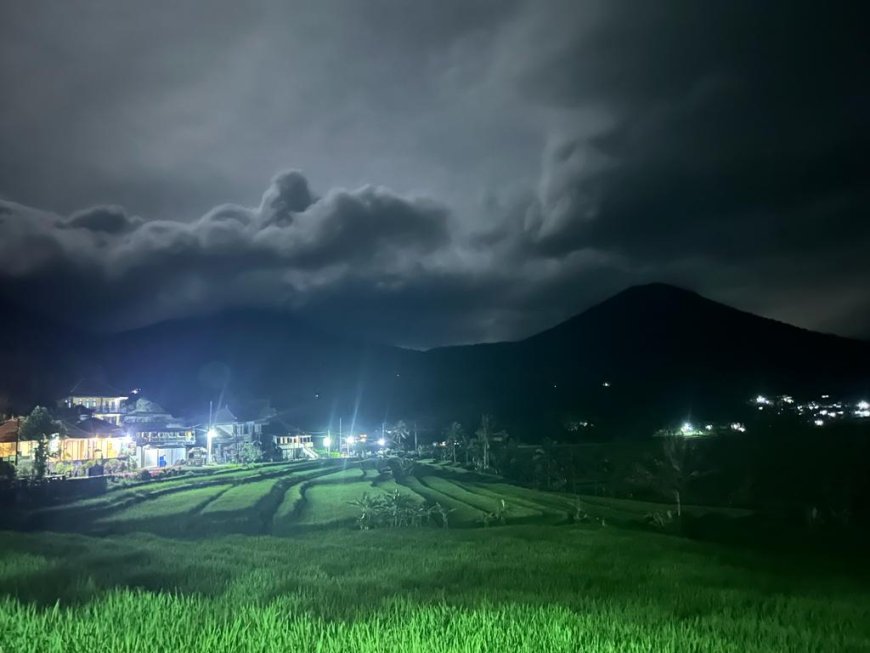
Jatiluwih Village at Night (Photo Source: Author's Collection)
But no less beautiful is the scenery in Jatiluwih village when at night, there we can see the beautiful rays of light - small lights produced from the lights of the houses of the natives of Jatiluwih village.
Regarding the article above, the beauty of Jatiluwih village offers an amazing natural scenery. With vast and beautiful terraced rice fields, Jatiluwih village also presents a very mesmerizing natural panorama. Apart from its beautiful scenery, Jatiluwih village also has a characteristic in terms of food, namely Red Bali Rice which is a local native rice variety. With its natural beauty, culture, food, as well as with Balinese traditional ceremonies as local wisdom, Jatiluwih village is one of the must-visit places for those who are looking for authentic traditional Balinese beauty.
